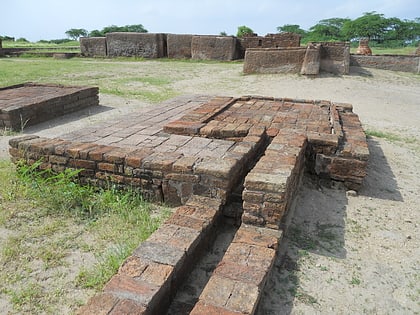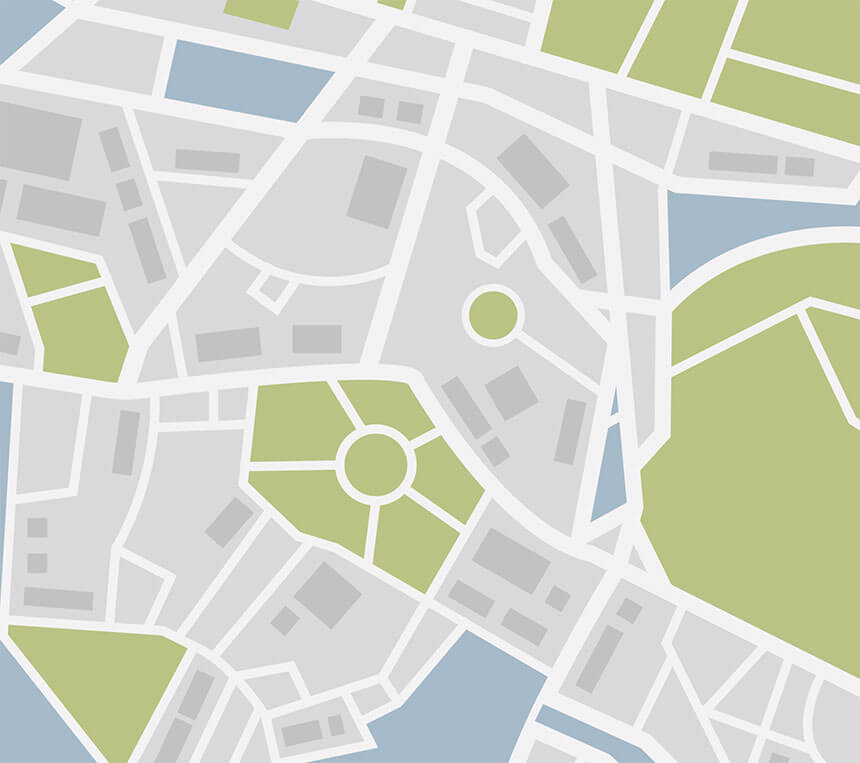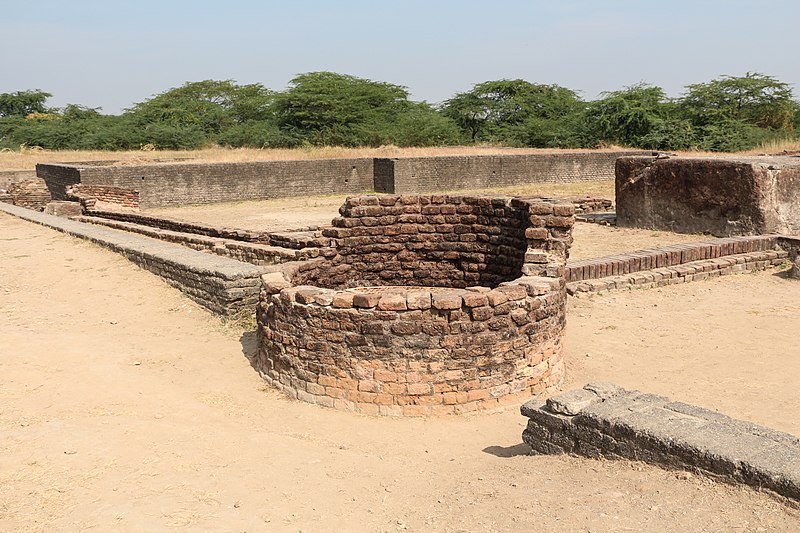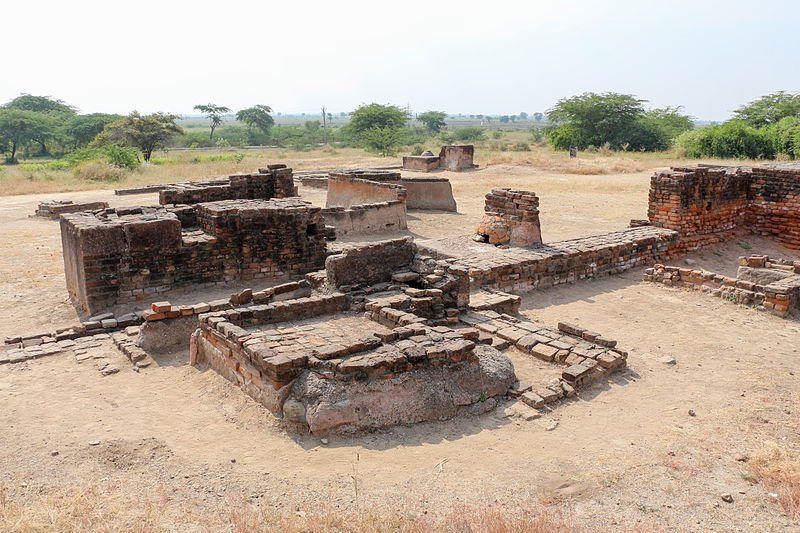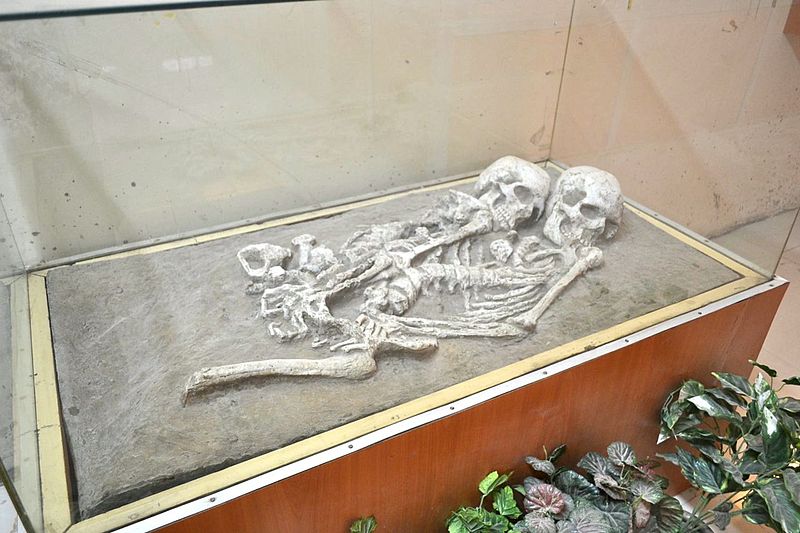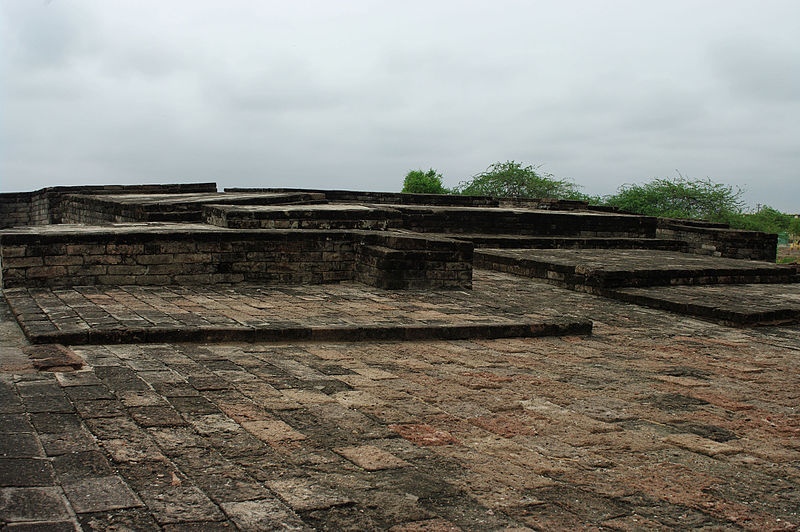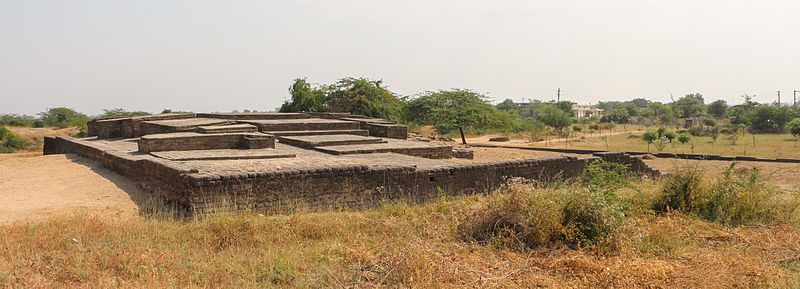Lothal
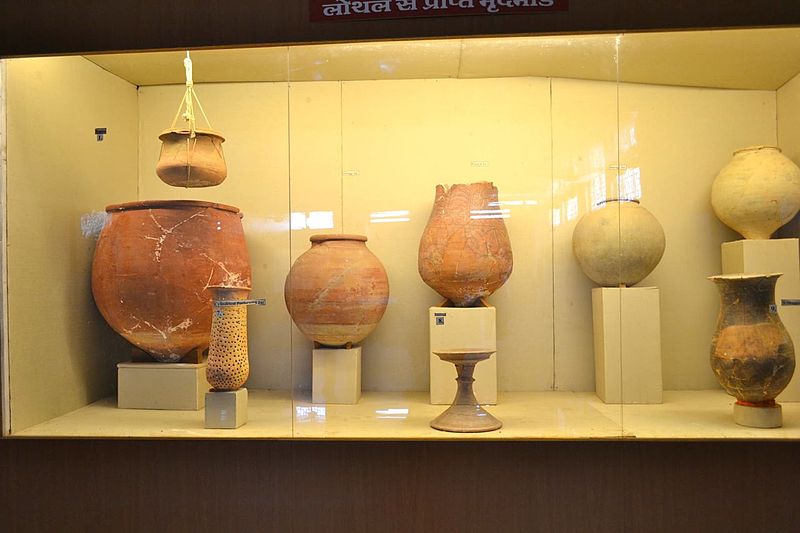
Facts and practical information
Lothal, a testament to the ingenuity of ancient urban planning, stands as a crucial archaeological site nestled in the Bhal region of the modern state of Gujarat, India. Identified as one of the significant cities of the Indus Valley Civilization, Lothal dates back to 2400 BCE and is a prime example of the early settlements that thrived in the region.
This ancient city was once a thriving trade center, renowned for its expertly engineered dockyard which is considered the world’s earliest known, designed for berthing and servicing ships. Lothal's dock connected the city to an ancient course of the Sabarmati river, which was one of the trade routes between Harappan cities in Sindh and the Saurashtra peninsula.
The site of Lothal reveals a meticulously planned layout with a sophisticated drainage system, warehouses, and residential areas. The city was divided into a citadel for the ruling elite and a lower town for the common people, showcasing a clear division of social classes within the society. Bead-making workshops and kilns for baking bricks were part of the industrial infrastructure, indicating a bustling economy.
Archaeologists have unearthed a treasure trove of artifacts from Lothal, including terracotta ornaments, shell bangles, beads, and even remnants of rice husks – providing evidence of agricultural practices. The discovery of seals, weights, and measures suggests that the people of Lothal engaged in trade with other Harappan cities, and possibly with Mesopotamia as well.
Gujarat
Frequently Asked Questions (FAQ)
When is Lothal open?
- Monday 10 am - 5 pm
- Tuesday 10 am - 5 pm
- Wednesday 10 am - 5 pm
- Thursday 10 am - 5 pm
- Friday closed
- Saturday 10 am - 5 pm
- Sunday 10 am - 5 pm
